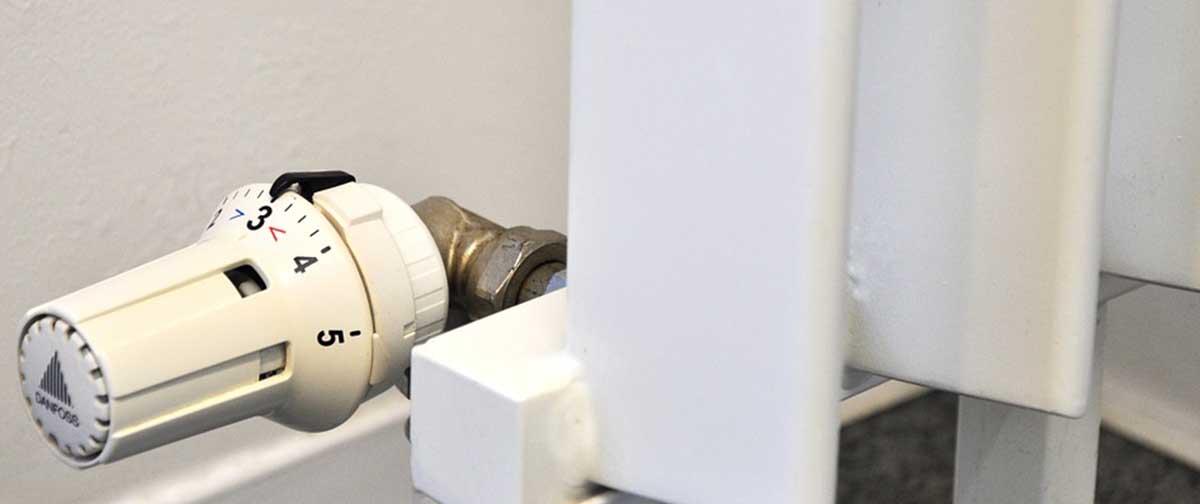What is a Heat Exchanger?

The purpose of a heat exchanger is to transfer heat from one fluid to another, hence the name. In the case of a boiler, this means transferring heat from gas to the water that will be circulating around your home to the radiators and hot water tank.
Non-condensing units are fitted with just the 1 heat exchanger, whereas modern condensing units have 2, maximising their efficiency and helping to save you money on your energy bills.
In this guide, we'll explain exactly what a heat exchanger is, how they work and the possible problems they might encounter.
Get Boiler Quotes
What is a heat exchanger?
When you turn the heating on, water circulates around the radiators in your home but will only be able to heat the space if it's hot. This is where a heat exchanger comes in.
Gas boilers burn gas, which then heats up and rises towards the heat exchanger that cold water passes through. As the water circulates, the heat is transferred from the gas to the water, which then heats up to effectively warm your radiators or provide hot water for a tank.
So, we began with hot gas and cold water but thanks to the heat exchanger, we end up with cooler gas and hotter water without the 2 fluids even having to meet.
Condensing and non-condensing boiler heat exchangers
By law, all new boilers have to be condensing as they're much more efficient than non-condensing units. This is down to condensing boilers having 2 internal heat exchangers, 1 more than their non-condensing counterparts, meaning that they're able to capture and reuse heat from waste gases. Let's take a look at the difference between how these boilers operate.
Non-condensing
Non-condensing units have 1 heat exchanger, which cold water enters to be heated up and then circulates around the home to radiators and the hot water tank. Waste gases are sent outdoors via a flue, which can reach temperatures of up to 250°C, showing just how much heat is being wasted.
This isn't a very efficient process, which is why condensing boilers have been made mandatory in the UK. They're better for the environment and your bank balance thanks to having a second heat exchanger.
Condensing boilers
Condensing boilers are fitted with 2 main heat exchangers, meaning that they're able to recycle the heat from waste gases, increasing their efficiency.
To begin with, cold water enters the secondary chamber, absorbing heat from flue gases that would otherwise be wasted by a non-condensing unit. The water then passes through the primary heat exchanger, warming up further before travelling to the radiators and hot water tanks.
It's clear to see just how much difference a second heat exchanger makes by the temperature of the flue. A condensing flue can be 200°C cooler than a non-condensing flue, all of which is being transferred to the water rather than going out into the atmosphere.
Why is this a good thing? Simply put, your heating system will be much more efficient which will help to save you money on your energy bills.
Get Boiler Quotes
What is a boiler flue?
As your boiler is in operation, waste gases are produced and need a safe way to leave the building, which is why gas boilers have a boiler flue. It's a white or black pipe or duct, that you'll have seen on the side of homes and building, expelling gas out into the atmosphere.
Due to these waste gases potentially being harmful, boiler flue regulations are in place to keep you, your home and your neighbours safe.
Common boiler heat exchanger problems
Heat exchangers are an important part of any boiler so in the unlikely event that they come across an issue, it's good to be able to identify it early so that it can quickly resolved. We've highlighted some of the most common boiler heat exchanger problems below.
Kettling
If you're hearing noises similar to a kettle boiling then chances are your heating system is kettling. This is caused when there's a build-up of sludge or limescale on the heat exchanger, restricting the flow of water. This can lead to your system costing more to run and reducing its potential lifetime.
We highly recommend getting a professional engineer if your system is kettling, as they'll be able to flush out the system, removing the build-up of deposits and get it working efficiently again.
Leaking
Any leaking or dripping from a heat exchanger is most commonly caused by a broken internal component, typically a pump seal or pressure valve.
Water coming from the pump seal means that it's probably worn out over time and needs to be replaced. Leaking from a pressure valve suggests that the boiler pressure is too high.
Repairing a broken heat exchanger
You shouldn't attempt to repair an issue with your heat exchanger yourself, instead contact a qualified engineer who will be able to safely carry out the work.
Heat exchanger replacement costs
In the case that your boiler's heat exchanger is beyond repair, it will need replacing. A replacement heat exchanger will typically cost between £300 – £500 but this will vary depending on the model. This potential cost is just for the part itself and not inclusive of what the engineer will charge for carrying out the work.
Different engineers will have different prices, which is why we highly recommend getting quotes from several engineers to help you find the best deal. The best way to do this is by completing our simple online form. Provide details of the work you need carrying out and you'll be contacted by up to 3 trusted engineers in your area.
Get Boiler Quotes



